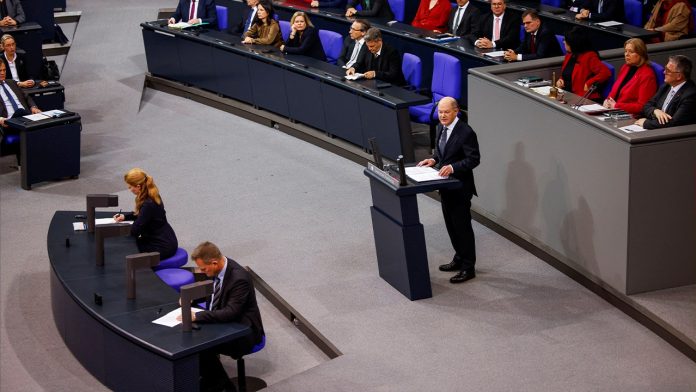On Monday, the German parliament agreed to withdraw its confidence in Chancellor Olaf Scholz and his government, paving the way for an early election on Feb. 23 due to the government’s collapse.
Last month, Scholz’s three-party coalition disintegrated after the Free Democrats left over a debt dispute, leaving his Social Democrats and the Greens without a majority amidst a deepening economic crisis.
President Frank-Walter Steinmeier can only dissolve parliament and call an election if the chancellor loses a confidence vote, as per rules aimed at preventing instability and the rise of fascism in the 1930s.
German Chancellor Olaf Scholz arrives at the lower house of parliament Bundestag in Berlin, Germany, on Dec. 16, 2024, to hear whether the parliament will rescind its confidence vote. (Liesa Johannssen)
GERMANY’S SCHOLZ REJECTS CALLS FOR NO-CONFIDENCE VOTE AS COALITION GOVERNMENT COLLAPSES
The debate leading up to the vote marked the beginning of intense campaigning for the election, with party leaders exchanging heated criticisms.
Scholz and his conservative rival, Friedrich Merz, engaged in accusations of incompetence and lack of vision towards each other.
Scholz defended his crisis leadership during the economic and security crisis caused by Russia’s invasion of Ukraine, stating his commitment to investing in infrastructure over austerity measures.




